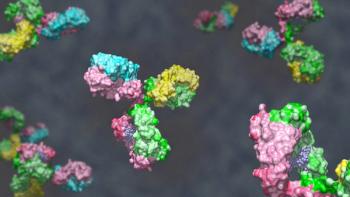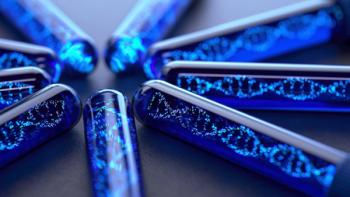
LG Chem has decided to proceed with IND-enabling studies and has renewed a license with Avacta.

LG Chem has decided to proceed with IND-enabling studies and has renewed a license with Avacta.

Finding specific solutions to overcome uncertainty has led to the evolution of a new clinical trial research environment.

ImmunoGen has formed a research collaboration with Oxford BioTherapeutics to develop novel antibody-drug conjugates for cancers with high unmet needs.

Having a clear clinical strategy early on can shave time off overall development projects.

Advances in genomics tools can lead to quicker biotherapeutic development.

With recent approvals of bispecific antibodies, these complex molecules are fast moving out of the research box and into clinical pipelines.

Lonza and Israel Biotech Fund form a two-year agreement to support accelerated development and manufacture of biologics and small molecules.

A new initiative aims to speed the approval of and access to new drugs for young patients around the world, while limiting the number of children needed for testing in clinical trials.

Further development of nucleic acid-based therapeutics has been accelerated by the recent success of mRNA vaccines.

With high-concentration biologics, careful selection of excipients in formulation is crucial for reducing viscosity without destabilizing the protein.

NIH has announced four new grant awards to fund new tuberculosis research advancement centers.

The recent success of mRNA vaccines has opened the door for further and future development of nucleic acid-based therapies.

CAR-T cell therapy development is a complex process that requires standardization.

SCG Cell Therapy has signed a collaboration agreement with A*STAR’s BTI to advance the development of antibodies for infectious diseases and cancer treatments.

Novo Nordisk will expand its existing research collaboration in novel delivery technologies with MIT and Brigham and Women’s Hospital.

A rise in investments and funding into regenerative medicines projects has helped to advance a rich clinical pipeline.

The authors review some of the monoclonal antibody candidates that reached Phase III clinical trials but were discontinued at later stages.

Alvea has begun preclinical testing of a scalable, shelf-stable DNA vaccine against SARS-CoV-2 variants.

ImmunoGen and Eli Lilly and Company have entered into an agreement that gives Lilly exclusive rights to research, develop, and commercialize ADCs designed for targets selected by Lilly from ImmunoGen’s camptothecin technology.

A rich clinical pipeline of regenerative medicine product candidates bodes well for a robust future.

The collaboration between Bristol Myers Squibb and Century Therapeutics will combine Century’s iPSC-derived allogeneic cell therapy platform with Bristol Myers Squibb’s expertise in cell therapy and oncology drug development.

The COVID-19 pandemic generated partnerships among organizations with the goal of changing the way in which assay development and tech transfer of these assays are conducted moving forward.

The urgency with which COVID-19 forced the biopharma industry to produce therapies has refocused the search for new tools to enable rapid therapeutic responses to a pandemic.

FDA has cleared an IND from Poseida Therapeutics, allowing continued development of the company’s allogeneic CAR-T cell therapy candidate for treating multiple solid tumors.

The authors review some of the monoclonal antibody candidates that reached Phase III clinical trials but were discontinued at later stages.